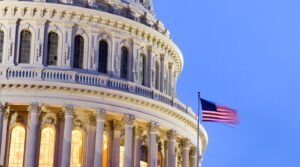Professor Arkes and I disagree about a lot of things, even about what he has said in writing. He insists that I have misunderstood his views in various ways, and of course he is the final authority on what he believes. The rest of us can know only what he said, and, with due respect, I believe I got that right.
For example, Arkes now insists that he never said that Justice Alito’s opinion in Hobby Lobby makes the sincerity of the plaintiff’s religious beliefs the only important issue in the case. In fact, Arkes has written at least four articles in the last six weeks saying exactly this. In the first article, Arkes referred to “the same argument over ‘sincerity’ that has been accepted as decisive in the Hobby Lobby case.”
In the second, he wrote,
The Hobby Lobby case could have been won without setting into place these premises: that religious convictions are marked by “beliefs,” rather than “truths;” that we accept as a “religion” virtually anything that people tell us they regard as their religion; that on the strength of these “beliefs” held “sincerely,” we give exemptions from the laws that are imposed on everyone else.
In the third, he wrote,
Start your day with Public Discourse
Sign up and get our daily essays sent straight to your inbox.Should it not be the substance of the issue that we are testing for truth, not merely the question of whether someone happens to believe it? And yet, is that where Justice Alito placed the weight of his opinion in the Hobby Lobby case? Did he take up space considering the truth of the claim made by the Greens that abortion destroys a human life? Or did he not place the accent of the argument decidedly on the side of beliefs held “sincerely”? And that appeal to “sincerity” is the telling sign that no argument was made on the moral substance of the matter.
And in the fourth, he wrote,
I’ve argued . . . that Hobby Lobby could have been won without putting the main and decisive accent on the “theology” of the litigants or the “sincerity” of their “beliefs.”
Quod scripsit, scripsit. I’ll not waste more words arguing over what Arkes actually said. The reader can judge for himself whether I have misrepresented Arkes’s views as expressed in his published writings or whether he is now backing away from positions that are indefensible.
Abstract Reason vs. the Reasoning of Particular Individuals
It will be more profitable to discuss some substantive disagreements. In my article, I argued that conferring on public officials a general power to inquire into moral or religious truths is dangerous because such people are no better than anyone else at sorting out true beliefs from false ones and they are just as likely as everyone else to think that ideas different from their own are unreasonable or perverse. Because of this, Arkes speculates that I may have “lost confidence that there is indeed a discipline of reason that may guide and restrain judges, as it guides and retrains everyone else.” Now, I have often said that I am an Aristotelian-Thomist in morals, and so there can be no doubt that I believe that reason can determine what is moral and what is immoral. Arkes’s question is helpful, however, because it highlights what I think is the central confusion in his position.
That is, Arkes consistently runs together what reason, in some abstract philosophical sense, can know, with what we can expect from the efforts at reasoning of particular human beings. The first is a question of whether certain sound arguments exist; the second is a question of how likely particular human beings are to discover and embrace these arguments. These are very different things.
An analogy will help. The natural sciences are the work of reason, and over the last few centuries human beings have made astonishing advances in understanding the natural world. On the basis of this success, no one doubts that human reason can discover scientific truths. But a person would have to be daft to support, on this basis, setting up a committee of eminent scientists with the power to decide, in a way binding on other people, which scientific propositions are true and which are false. The reasons are obvious: even professional scientists, when dealing with purely scientific questions, are subject to common human failings, including pride, envy, and all manner of prejudices, which can readily lead them into error. The history of science is replete with such examples, such as the early twentieth-century physicists who resisted the big bang theory because of its perceived theistic implications.
If this is true of natural science, how much truer is it of morality and religion, where the inquirer’s biases and self-interest will have much greater influence on his reasoning? We all know people (often ourselves) who have adjusted their moral beliefs when they have become inconvenient. We all know people (often ourselves) who hold certain moral views for no better reason than that we learned them from our parents. For such reasons, and because of the inherent difficulty of many moral and religious questions, there is scant basis to think that any particular person is likely to reach correct results on a given question, even when there is a unique, rationally determinable answer to the question. This is why there is so much disagreement on normative questions, even among intelligent and informed people of good will.
Now, if a person making a decision on moral or religious questions also has the political power to bind other people by his decision, then, besides all the problems mentioned above, he will also find himself courted and lobbied by people with special interests in the decision, and he will be flattered by those who are pleased with his decision and reviled by those who are disappointed. This is why Lord Acton said that power corrupts. Under these circumstances, the chances of error are tremendous. One need only look at our current laws to confirm this.
In designing governmental institutions, therefore, it’s critically important to make it difficult to enact laws without very broad support (broad support reduces the chance of error), to allow errors to be corrected relatively easily, and to have a system of checks and balances that requires approval by different officials answerable to the people in different ways before proposed laws become effective. The Religious Freedom Restoration Act (RFRA), under which Hobby Lobby was decided, is part of such a system.
RFRA Provides Additional Protection for Religious Freedom
Under our Constitution, enacting a federal law requires the assent of both houses of Congress and the concurrence of the president (subject to Congress’s overruling a presidential veto by a two-thirds vote of both houses). This system by itself affords real protection to minorities whose religious practices may be restricted by legislation: they have the opportunity to participate in the political process at various points to affect the legislation. Beyond that, however, RFRA provides that, if a federal law substantially burdens a person’s exercise of his religion, the government must convince a court that applying the burden to the plaintiff furthers a compelling governmental interest by the least restrictive means available. This is a protection of religious freedom over and above the protections available to minorities in the ordinary legislative process.
Thus, Arkes misstates how the lawmaking process works when he says that RFRA “shifted from the legislatures to the judges” “the authority to make decisions about what laws are ‘compelling’ enough to justify restricting religious freedom,” and that this was “a radically wrong transfer of power.” Before a bill restricting religious freedom becomes law, Congress must still pass the law and the President must still sign it—presumably after hearing from people adversely affected by the law. (Recall how Cardinal Dolan lobbied President Obama regarding the HHS Mandate.) After that, people adversely affected by the law get a second bite at the apple in court, for if the government cannot convince the court that the law furthers a compelling governmental interest by the least restrictive means, the plaintiff will be exempted from the statute. Prior to RFRA, the legislative process alone protected religious freedom. After RFRA, the legislative process and judicial review protect religious freedom. The difference is between one layer of protection and two.
What Courts Decide Under RFRA
Arkes is also confused because I say both that judges are not good at determining moral and religious truths and that it is a good thing that RFRA empowers judges to determine whether a law that burdens the exercise of religion furthers a compelling governmental interest by the least restrictive means. This confusion arises because Arkes is not attending to what RFRA actually requires.
Under RFRA, the government must prove that a law that substantially burdens a plaintiff’s exercise of religion furthers a compelling governmental interest by the least restrictive means available. This is not at all the same question as whether the law is “justified or unjustified” (Arkes’s language), good or bad, right or wrong, wise or foolish. On those questions, we should expect the views of judges to be as diverse as those of any other group of people.
The question whether a law serves a compelling governmental interest by the least restrictive means is a much narrower question cast in terms that have technical (though not fully precise) meanings in constitutional law. As I emphasized in my previous article, resolving such questions undoubtedly involves making moral judgments, but not entirely open-ended judgments like whether the law is justified or justified, good or bad, right or wrong. We can reasonably hope that the question whether a law furthers a core purpose of government will yield more agreement than whether the law is good policy, and we can reasonably hope that the question whether there are other means of attaining a given end will yield more agreement than whether the means chosen are the best available. The goal in designing governmental institutions is not to produce a system in which government actors never make moral judgments; that’s obviously impossible. The goal is to cabin their discretion in ways that will tend to produce the best results on average. By adding judicial review to the normal legislative process, RFRA does that.
Morality and Law Again
In reading his articles on Hobby Lobby, I sometimes got the impression that Arkes thinks that what’s right should be legal and what’s wrong should be illegal. Since this idea is so clearly mistaken, I didn’t attribute it to an intelligent and learned man like Arkes outright, saying only that he “sometimes seems to imply” such a view. In his response, Arkes disavows this position, but it turns out that he does hold a very similar view. For, in his response to my article, Arkes expressly rejects my view that there are some immoral actions that it would be immoral to make illegal. To deny this proposition is to affirm its contradiction, which is that, for all immoral actions, it would be moral to make them illegal. Indeed, Arkes has to say this, because he holds that there is never a moral right to do wrong. Nevertheless, Arkes says, “the classic tradition has made room for ‘prudence’—for not applying the principles of right in their stringency to every case” because sometimes “it’s necessary for statesmen to make an accommodation with evil for the sake of compressing it, as the American founders did with slavery.” So, for Arkes, although it is morally permissible for the law to suppress any form of moral wrongdoing, in some cases it is imprudent to so.
His example of slavery fits the bill, but it is easy to think of others that don’t. A wealthy man who gives nothing to the poor acts immorally, but a law requiring him to give away an appropriate fraction of this wealth would be not only imprudent but immoral. So too laws requiring spouses to pay the marriage debt with reasonable frequency, or requiring parents to love all their children equally. If Arkes wants to maintain his view that there is never a moral right to do wrong, he must say that all such laws are perfectly moral, though perhaps imprudent.
Now, it’s tempting to see this as a merely semantic disagreement. That is, I have argued that the law is an administrative system operated by human beings who always have imperfect information and often have inclinations to do wrong; hence, confiding certain powers to the government is so dangerous as to be immoral—just as giving whiskey and automobiles to teenage boys can be immoral. Since the imprudent shades off into the recklessly immoral, perhaps the laws Arkes calls imprudent I’m calling immoral.
To Become Virtuous, One Must Choose Good Actions Freely
In some cases, this is probably right, but there is more to this disagreement than that. As I see things, morality is about human beings becoming virtuous, which requires that they knowingly and freely choose good actions (that is, actions ordered to the final end) with good intentions (that is, they choose the actions because they are so ordered).
Now, which actions are right and which wrong in given circumstances is often difficult to know, and in many circumstances there are no uniquely right choices. Part of becoming virtuous, part of becoming a good human being, is identifying and choosing good actions for oneself. If one’s neighbors, or the state, or even God himself were always at hand to point the way and then coerce a man into doing good and avoiding evil, virtue would become impossible: a man might always choose good actions, but he would not become a virtuous man. This is one reason why actions by other people, including the government, that interfere with an individual’s actions may sometimes be immoral, even when the individual’s actions are themselves immoral. Arkes has no place for such an idea, and this is a substantive and not merely semantic disagreement between him and me.
Arkes’s very aggressive view that everything immoral may, consistent with morality, be made illegal, does not sit easily with his insistence that “government bears the burden of showing a ‘justification’—a proposition about the rightness or justice—of restricting personal freedom in the laws.” This appeal to personal freedom makes it sound like there is a wide range of conduct, some moral and some immoral, that it would be immoral for the government to restrict. But Arkes cannot say that, for he has already said that, if conduct is immoral, the government may, consistent with morality, suppress it. For him, the conduct’s immorality must be a sufficient justification, founded in “rightness or justice,” to suppress it by law, even if in some cases it would be imprudent to do so.
Arkes tends to choose examples involving gravely immoral conduct causing grievous harm to others, such as enslaving or killing human beings. In these examples, suppressing the relevant conduct would indeed be moral. But by its terms his principle extends to all immoral conduct, and when it comes to laws requiring the rich to give alms or spouses to have sexual intercourse, the most he can say is that such laws would be imprudent. I think the correct understanding of human freedom is a good deal more capacious than that.









